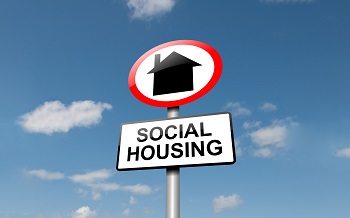Insights
The government’s Regulator of Social Housing has recently published a report on key risks which are faced throughout the social housing sector.
To ensure legal compliance and the management of any threats which could prevent objectives being achieved, the boards of all social housing organisations must have a robust understanding of the strategic and financial risks that their businesses might face. The Sector Risk Profile Report 2018 provides a comprehensive overview of these risks.
Strategic and financial challenges
Compliance with statutory requirements should be regarded a minimum when providing assurance that tenants are safe. To go beyond this and demonstrate that health and safety risks are effectively managed will mean identifying, managing, monitoring and reporting on them in a way that ensures that there is effective oversight by the governing body.
The report emphasises that if necessary, registered providers should take professional advice to ensure that they are clear about their responsibilities. It states that registered providers must demonstrate that they understand their statutory responsibilities, specifically highlighting the areas of gas safety, fire safety, electrical safety, asbestos, legionella and lift safety, as well as employee safety.
Where health and safety issues do arise in the sector, the Regulator of Social Housing confirms that it often sees poorly designed or poorly implemented control systems in relation to governance. Good quality data on health and safety issues, for example on gas safety certificates, is essential to ensure compliance with statutory obligations. The report reaffirms that the regulator will act wherever it finds breaches of standards which cause potential or actual serious harm to tenants.
Another key area that is highlighted within the report is fire safety. Following the Grenfell Tower fire, there are significant changes on the way to the requirements that all landlords will need to fulfil. The independent review of high rise building regulations and fire safety set out a number of important recommendations for building safety. Registered providers need to consider the impact that these recommendations will have on their businesses.
One forthcoming change is a ban on the use of combustible cladding for all new buildings including care homes, student accommodation and residential buildings in England above 18m (60ft). The prohibition will be implemented through changes to building regulations to be brought forward in late autumn.
For existing premises, the government is currently considering a £400m fund for of removing and replacing unsafe Aluminium Composite Material cladding for local authority and housing associations. The decision as to whether to fit sprinklers in buildings is a matter for individual registered providers and their boards, subject to the findings of a fire risk assessment.
The Sector Risk Profile Report confirms that progress on replacing cladding identified following combustibility testing has been made by registered social housing providers. Where such cladding has been identified, work on these buildings must continue at pace.
Providers of social housing in tower blocks with cladding which needs to be replaced are warned that they should understand the costs associated with replacement material and any implications on other planned major repairs, particularly for large and complex buildings.
How Alcumus can help
Our fire and health and safety consultants pinpoint how best to manage your organisation’s compliance, now and going forward. We can assist you with your strategies, policies and risk assessments.
Because of our fire safety background, experience, knowledge and skills, we can work closely with clients, fire services and the Health and Safety Executive to ensure effective safety management and the avoidance of enforcement action.
For further information on how our health and safety consultancy service can help, call 01484 452 349.






